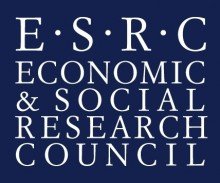Multi-millionaire rockers such as Sir Paul McCartney and Sir Cliff Richard are set to benefit from recent changes to EU copyright legislation that extend the duration of copyright protection. But, already copyright lasts for too many years and is overly complex, argue researchers from the Centre for Intellectual Property Policy & Management (CIPPM), Bournemouth University.
Their research shows that a copyright policy that brings a better balance between the interests of creators, investors and consumers is needed.
To design better copyright policy – as in other policy areas – the UK Government requires robust evidence. As part of the Economic and Social Research Council (ESRC) Festival of Social Science 2012, the CIPPM will host an interactive one day event that brings together the differing perspectives held by policymakers, creative industry representatives, social scientists and specialists in copyright law on what constitutes evidence relevant to copyright policy.
“Copyright law is a topical and contentious area that affects a wide range of people who have differing views on copyright policy,” states Ruth Towse, Professor of Economics of Creative Industries, Bournemouth University.
Economists view copyright law as essentially a benefit-cost ‘trade-off’ between the interests of the different parties. When representatives of creators and creative industries are asked to submit evidence to proposals for changes to copyright law, these representatives typically wish to present their own case rather than an objective view, Professor Towse’s research shows.
“Usually in a response to a call for evidence persuasive statements from stakeholder interest groups that have sufficient funds for lobbying are received,” Professor Towse points out. “And it’s apparent from consultations that creative industries’ interest groups regard copyright as a right that must be maintained, or preferably strengthened, rather than a privilege granted for the wider benefit of society. They are not that interested in objective evidence unless it supports their claims.”
The event, ‘What constitutes evidence for copyright policy’ encourages various representative groups to lay out their approach when making make their case to policymakers on proposed changes to copyright law. “The discussion will inform participants and the public alike and demonstrate the clashes of interests that policy-makers have to reconcile. This is especially timely as the Government is committed to implementing a set of copyright reforms recommended by the Hargreaves Review of Intellectual Property and Growth in 2011,” explains joint event organiser Professor Martin Kretschmer, Director of CIPPM.
“The digital revolution and the ever increasing power of the internet present a huge challenge to both copyright law and to those who rely on it as an incentive to creativity and as an income. It’s important to everyone that copyright policy making is based on objective evidence in order to ensure a better balance between the interests of creators, investors and consumers” Professors Towse and Kretschmer conclude.
For further information contact:
Professor Ruth Towse
Email: [email protected]
Telephone: 01822 810562
Professor Martin Kretschmer
Email: [email protected]
Telephone: 07971 478234
ESRC Press Office:
Sarah.Nichols
Email: [email protected]
Telephone 01793 413122
Jeanine Woolley
Email: [email protected]
Telephone 01793 413119







